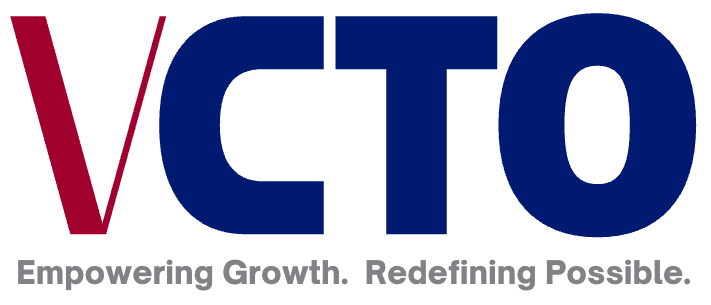
Why Small Businesses Should Cheer When Big Business Moves In
When a major company announces it’s moving into town, local headlines often focus on job creation, tax incentives, or political wins. But beneath the big stories and corporate logos lies a quieter ripple effect—one that can have a massive impact on small business.
For entrepreneurs and small business owners, the arrival of a large company in your community might feel intimidating at first. You might wonder: Will they take market share? Raise rents? Outcompete the little guys?
But the truth is, big business doesn't just bring payrolls and PR buzz—it can bring opportunity, foot traffic, innovation, and growth for the small business ecosystem surrounding it. When done right, this isn’t competition—it’s collaboration.
A Rising Tide That Lifts the Local Economy
Large businesses bring one critical resource that small businesses often lack: people. A major employer relocating to your area brings hundreds—sometimes thousands—of new employees with it. These workers need places to eat, shop, get their hair cut, get their car serviced, and take their kids after school. They need gyms, dry cleaners, barbershops, realtors, child care, and a place to unwind after work.
For local service providers and retailers, this is a gift. Suddenly there’s more traffic, more potential clients, more recurring revenue walking around your community every day. If your business is located near one of these corporate hubs—or you’re clever enough to target their employee base—your customer base could expand overnight.
And it’s not just the rank-and-file employees who matter. With executive teams come higher-end clientele, sponsorship dollars, board participation, and connections to national networks.
Vendor Opportunities: Be Their Local Partner
Big businesses rely on smaller partners for all kinds of support: office supplies, catering, technology, cleaning services, signage, graphic design, event planning, marketing, logistics—you name it. And increasingly, these companies are under pressure to buy local and diversify their vendor base.
That means small businesses with the right positioning can become long-term vendors or service providers. Whether you’re an IT firm, commercial landscaper, printer, or caterer, a single contract with a large employer can provide stability, visibility, and long-term growth.
If your city or Chamber of Commerce is doing its job well, it’s facilitating these connections—hosting supplier diversity events, procurement fairs, and matchmaking sessions to help small businesses tap into corporate procurement.
Big Business Attracts Bigger Investment
When a large company plants a flag in your city, investors take notice. So do developers. So do other businesses. It’s a signal that your area is open for business—and worth betting on.
This means better infrastructure, more retail developments, stronger broadband, improved roads, and larger public-private investments. It also often means better schools, higher home values, and a more educated talent pool—all of which help small businesses grow.
And with that development comes visibility. A downtown with a corporate anchor looks more attractive to both locals and tourists. Conferences get booked, business travel increases, media attention grows—and all of that helps small businesses tap into new customers and new revenue streams.
Talent Pool Upgrade: A Win for Hiring and Collaboration
One challenge small businesses face is attracting and retaining skilled talent—especially in specialized fields like marketing, software development, or financial management. When big business comes to town, it brings with it a pipeline of professionals with deep experience.
Some of those professionals may become your next hire. Others may moonlight as consultants, advisors, or coaches. Some may become co-founders or collaborators. And many will become customers.
Even better, their presence raises the bar for the entire business community. They bring ideas from other markets. They expect higher service standards. They introduce new tools, platforms, and ways of doing business. This cross-pollination accelerates local innovation and pushes small businesses to evolve faster.
Community Engagement: Dollars That Matter
Large companies are often expected to give back. Corporate social responsibility is no longer a buzzword—it’s a baseline. That means sponsorships, charitable giving, scholarships, and event support for local nonprofits, schools, and yes—small business events.
Your pitch for a Chamber event or a small business summit may suddenly have a high-powered sponsor. Your local little league, networking group, or startup incubator could be underwritten by a Fortune 500 brand trying to make good on its community promise.
The businesses that benefit most from this funding are the ones who are organized, visible, and ready to present value. Show up. Make the ask. Build relationships.
What Small Businesses Should Do When Big Business Moves In
If you’re a small business owner, don’t sit on the sidelines when a large company enters the picture. Instead:
Position yourself as a local solution: Look at the services and products they’ll need and be ready to pitch yourself as a more agile, community-rooted partner.
Network strategically: Attend community events, chamber mixers, and city planning meetings where corporate reps may be present.
Understand their values: Read their press releases. Know what they care about—sustainability, equity, community impact—and align your offerings accordingly.
Be ready to scale: If they say yes to your proposal, can you handle the volume? Think through how you’d deliver without sacrificing quality or service.
Collaborate with other small businesses: Team up to create bundled offerings, co-sponsor events, or increase capacity together. The rising tide lifts all boats.
It’s easy to view large corporations as a threat to Main Street. And yes, when big-box chains move in without care for local culture, they can erode the character of a community.
But when large businesses are welcomed strategically—and small businesses are empowered to plug into their ecosystem—the result is a more vibrant, diverse, and resilient economy. One where innovation trickles down, relationships scale up, and local entrepreneurs thrive in the shadow of national giants.
The key is mindset. Instead of asking, “How will this hurt my business?” start asking, “How can I position myself to benefit?”
Because if you play it right, big business doesn’t mean less for you—it could mean more.



